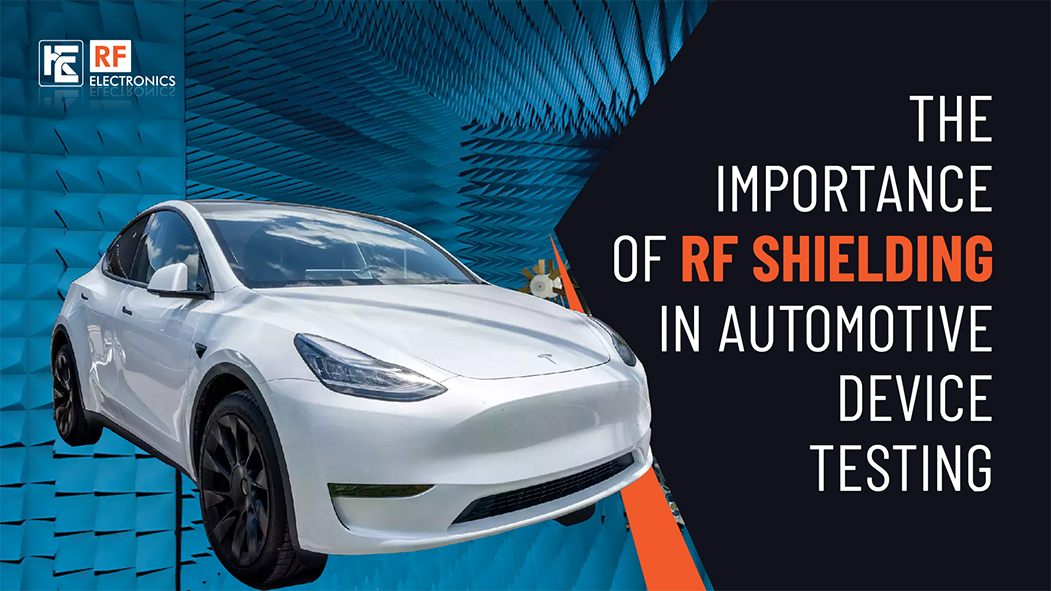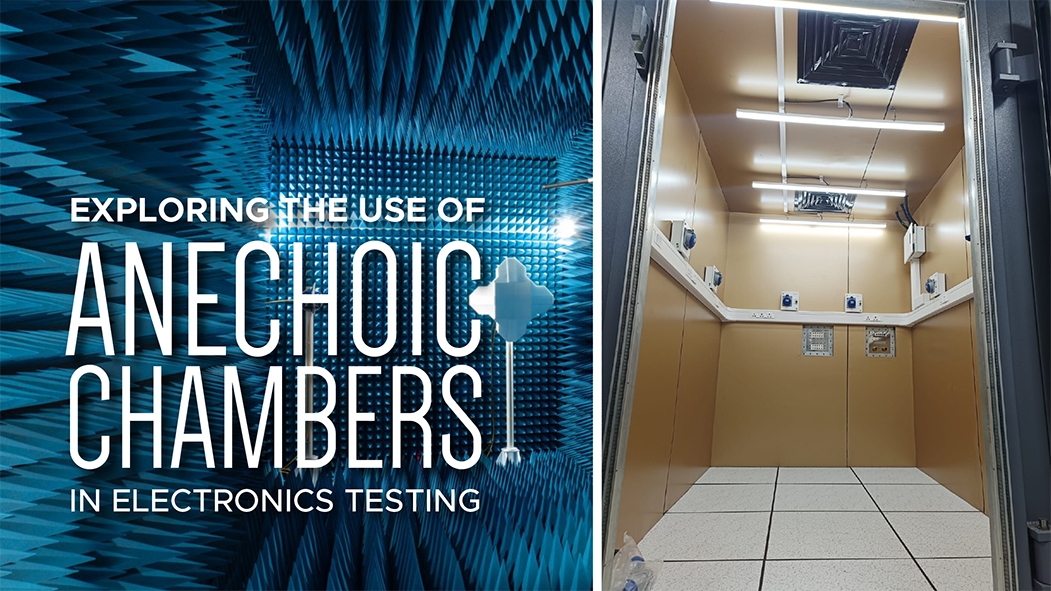Jan 02, 2025

As cars become more advanced, they are packed with complex electronic systems that improve safety, performance, and the overall driving experience. Features like Advanced Driver Assistance Systems (ADAS), infotainment, and vehicle-to-everything (V2X) communication depend on these electronics to work reliably in different conditions. To ensure these systems are safe, effective, and meet industry standards, RF shielding is crucial. It helps protect the testing process from interference, so each device’s performance and compliance can be tested accurately.
RF (Radio Frequency) shielding is a technique that blocks electromagnetic fields by surrounding electronic devices or testing environments with barriers made of conductive materials, such as copper or aluminum. These barriers keep unwanted electromagnetic signals out and contain any emissions within the testing area.
Think of it like soundproofing a room. Just as a soundproofed room keeps noise from coming in or out, RF shielding blocks signals that could interfere with sensitive electronic devices. In automotive testing, for instance, RF shielding helps prevent external signals (like those from nearby cell phones or Wi-Fi networks) from interfering with a device's performance during testing. At the same time, it keeps any signals emitted by the device being tested from affecting other systems or equipment nearby.
This shielding is crucial for automotive manufacturers because it allows them to test each electronic device under controlled, interference-free conditions. As a result, they can verify the device’s performance, ensure it meets safety and regulatory standards, and avoid any issues that could arise from unexpected signal interference.
1. Preventing External Interference
RF shielding prevents external electromagnetic interference (EMI) from affecting the testing process. In real-world scenarios, automotive devices are exposed to various sources of interference, including signals from other vehicles, infrastructure, and consumer electronics. By shielding test environments, RF shielding helps simulate real operating conditions, eliminating the risk of test results being skewed by external noise.
2. Containing Internal Signals
RF shielding also helps contain the internal signals emitted by the device under test. Automotive devices, such as those in ADAS or wireless communication modules, emit signals that can interfere with nearby systems if uncontained. RF shielding ensures these emissions do not affect other equipment, helping prevent cross-interference issues and ensuring accurate testing results.
Today’s vehicles have more electronics than ever, which makes testing and verification more challenging. Automotive testing is crucial to ensure that every component works properly and safely within the overall vehicle system.
1. Safety Assurance
Safety is the highest priority in automotive testing because any malfunction could lead to serious risks. RF shielding plays a key role in testing safety-critical systems like ADAS (Advanced Driver Assistance Systems), airbags, and collision prevention systems. It ensures these systems operate reliably by blocking any outside signals that could interfere with testing, so manufacturers can confirm that each device functions as intended in real-world conditions.
2. Reliability
RF shielding contributes to the reliability of automotive devices by providing a stable testing environment. Electronic components in vehicles must endure various environmental conditions without failing. Testing in an RF-shielded environment ensures that devices are subjected only to conditions relevant to their design, producing consistent and reliable results.
3. Compliance
Automotive devices must comply with strict regulatory standards concerning RF emissions and immunity. Shielded testing environments help verify that these devices meet legal and industry standards, ensuring they are suitable for public use without causing interference in surrounding environments.
4. Performance Optimization
RF shielding improves the accuracy of performance testing by reducing interference. Devices like GPS, radar, and wireless modules can be affected by outside signals, which may impact their reliability. Shielding helps manufacturers test these devices accurately, make sure they’re optimized for real-world conditions, and catch any issues early in the design process.
5. Integration Challenges
Modern vehicles have many interconnected electronic systems that need to work smoothly together. RF shielding allows manufacturers to thoroughly test how each component interacts with others. This way, they can identify and solve integration issues that might otherwise cause problems across the whole system.
6. Software Validation
Software now controls many automotive functions, from diagnostics to vehicle control. RF shielding provides an interference-free environment that is essential for testing software-driven systems. This helps validate software functionality, ensuring that it responds correctly in different scenarios.
7. Customer Satisfaction
Ultimately, RF shielding contributes to customer satisfaction by helping ensure that the electronics within a vehicle work as expected. Shielded testing environments ensure that manufacturers can guarantee product quality, delivering devices that perform well and meet customer expectations for reliability and safety.
RF Electronics is a leader in providing RF shielding solutions tailored to automotive testing requirements. With expertise in developing state-of-the-art shielded enclosures and equipment, RF Electronics ensures that manufacturers can conduct accurate, interference-free testing, contributing to high-performance and reliable automotive electronics. By prioritizing innovation and quality, RF Electronics supports the automotive industry in achieving compliance, safety, and customer satisfaction.
With the rapid advancement of automotive electronics, precise and reliable testing is essential. RF shielding plays a key role in ensuring testing accuracy by blocking external interference and containing internal signals, creating a safe and compliant testing environment. This helps the automotive industry deliver vehicles that are both innovative and dependable.
At RF Electronics, we provide essential RF shielding solutions to support this mission. To learn more about our products and how they can enhance your testing process, contact RF Electronics(https://www.rfelectronics.net/contact-us/) today and discover how we can help drive innovation and reliability in every vehicle.
Previous Blog

Wi-Fi 8 – The Future of reliable Connectivity
Learn MoreNext Blog

Exploring the Use of Anechoic Chambers in Electronics Testing
Learn More